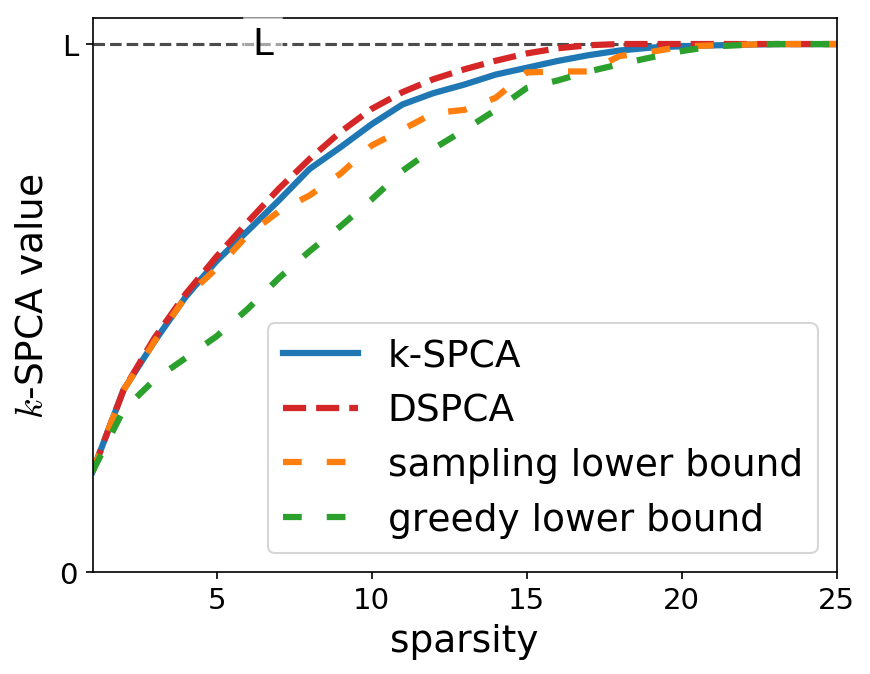Experimenting with Sparse PCA
The sparse PCA is define for a given matrix X in R^{n x p} and an integer k < p as the following optimization problem.
maximize v^TX^TXv such that ||v||_2 <= 1 and ||v||_0 <= k. (1)
We will denote A = X^TX in the following.
This problem is NP-hard as one need to try all possible support of size smaller than k to solve it exactly. This is what is done with the brute_force_spca function.
The paper by d'Aspremont, Bach and El Ghaoui (2008) [1] propose a method to compute an upper bound of this value based on a convex relaxation of the problem (1). The convexe relaxation is here directly solved using cvxpy.
By definition, the value of the k-SPCA can be lower bounded as the largest singular value of any sub mamatrix X_s composed by the columns of X from set s, as long as the cardinal of the set s is smaller than k. Thus, to compute an lower bound, it is possible to sample supports randomly and take the maximal singular value of all the generated supports.
In their paper [2], Moghaddam, Weiss & Avidan propose to compute a greedy lower bound for the sparse PCA. Their algorithm, named GSPCA, inspect a subset of support constructed greedily. The support is initialized to I={} and then grown up to k elements by including in this set the coordinate yielding the best increase for the singular value of the submatrix A_I.
These three bounds can be compare for small problems with the brute force approach. Here are the result for a random matrix of size 25 x 25 and rank 10.
